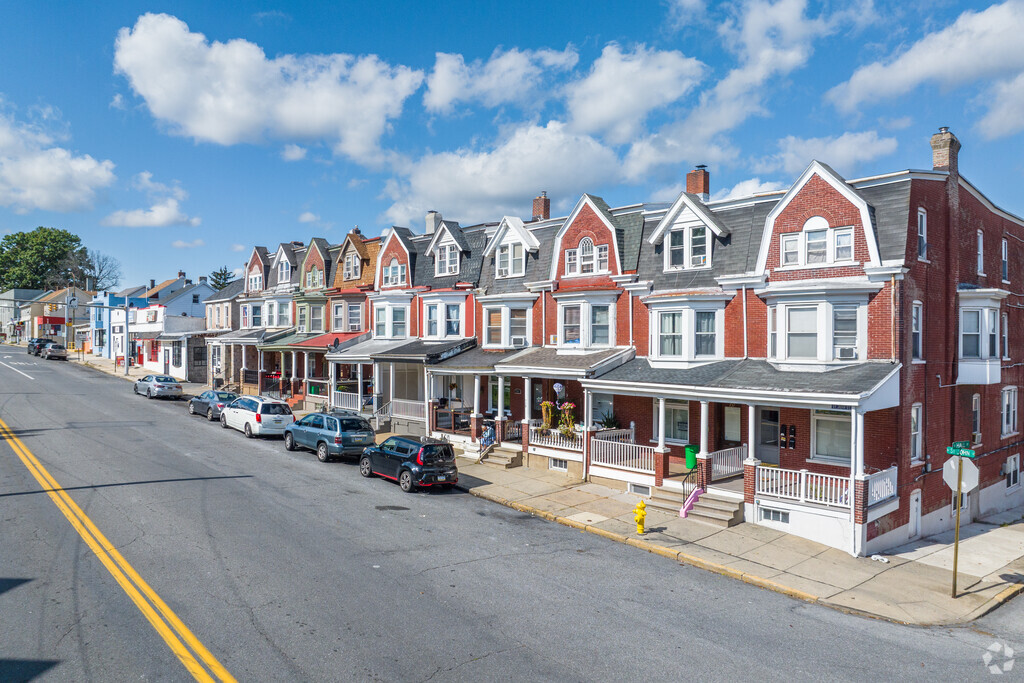Located in Pennsylvania, the rolling hills of Lehigh Valley were originally home to the Lenape tribe. Colonial settlers began to occupy the area in 1735. In 1762, the city of Northampton town was founded by James Allen, a powerful shipping mogul, and in 1838 the town was officially renamed Allentown. Adjacent to the Lehigh River, a tributary of the Delaware River, Allentown is the third largest city by population (125,845 residents in 2020) in Pennsylvania.
Allentown became a hub of early American industrialization in the 1800’s, with the booming trades of mining and manufacturing propelling the city to the industrial forefront the Industrial Revolution in the United States. The construction of the Lehigh Canal further accelerated the city’s economic growth by allowing for transportation of coal, iron ore, steel, and other products to New Youk and Philadelphia via the Delaware river.
In the 20th century, Allentown faced an economic decline due to shifts in manufacturing practices and the onslaught of trade globalization. Traditional industries such as steel and manufacturing suffered as companies moved operations overseas, leading to significant job losses and economic downturns. The city, however, has since diversified its economy, focusing on service industries such as healthcare and education, as well as the burgeoning technology sector. The result has been a revitalization of the city’s economic landscape.
Fun fact: Allentown holds historical significance! It is where American revolutionaries hid the Liberty Bell from the British for nine months after the British seized the city of Philadelphia in 1777.
Allentown as a Place to Live
Allentown has a wonderful assortment of historic buildings, houses, and industrial structures, many dating back to the time of the industrial revolution. Many shuttered red-brick mills and factories have been converted and retrofitted into stylish apartments and lofts. The downtown area is comprised of several dynamic districts: the Seventh Street business, the West End Theatre District, and the Hamilton Street business district.
The Blue Mountain range lies to the city’s north, and the scenic South Mountain ridge is to the southwest. These ridges offer great opportunities for hiking and skiing. Allentown is within a two hour driving distance to the bustling cities of New York City and Philadelphia. In 2024, U.S. News & World Report ranked Allentown number five in its list of best places to retire.
The following guidelines are aimed at those considering a move to Allentown or its suburbs. Note that this guide is not intended to be comprehensive – it is important to discuss your needs and plans for buying a house with a professional real estate agent.
If you need to find further information about Allentown PA Real Estate, you can click here to see more.
Searching for a House in Allentown
From the most economical to the most high-end choices, Allentown has homes for sale in almost every price range. The average price for a house is $235,000, with houses in the city center generally being the most inexpensive. Prices rise steeply as you look to West Allentown, where an elegant home can cost up to half a million dollars.
One of the most important things to remember when buying a house in Allentown (or anywhere else) is to not make a rash decision. Never agree to buy a house after just one viewing. Visit the house a few times at different times of day to get a better feel for the neighborhood. For the ultra-organized, write down a list of what you want, need, and would be nice to have in your house. Take that list when you visit and make notes.
Location is either an important factor or the most important factor, depending on who you ask. Know beforehand what is important to you about this issue. Distance and quality of nearby schools, shopping, and neighbors are usually the main factors.
Know what you are getting into if looking to buy a fixer-upper. It is easy to get in over one’s head financially and mentally when it comes to repairs and renovations. Houses with large driveways and wide connecting sidewalks are convenient until the Pennsylvania winter arrives. Then the snow shoveling will start. If the house has a basement (which is very common in Pennsylvania), look for trees planted close to the house. Tree roots can cause basement leaks.
Are You a First Time Home Owner?
If this is your first time buying a house, plan on keeping an emergency fund for things that can break or wear out and need to be fixed. This is especially true for older houses. If you can, try to pay a little extra on your monthly mortgage payment. If you buy a house with a substantial lawn, and you want to do your own yardwork, buy quality tools and equipment. You will save money in the long run. If you are moving to Allentown from somewhere in the south of the U.S., you will need to learn about prepping the house for winter.
On the mortgage side of a first time home purchase, you must understand your financial situation thoroughly, including your credit score, debt-to-income ratio, down payment requirements, and closing costs. Shop around for mortgage lenders and compare rates, terms, and fees to find the best deal tailored to your needs. Your real estate agent can be a valuable aid in this search. Carefully review the terms of any mortgage offered, including interest rates, loan duration, and potential penalties or fees for early repayment. For some, an FHA or USDA loan may be the way to go. Finally, consider seeking pre-approval for a mortgage to demonstrate your seriousness to sellers and to expedite the home buying process.
Find the Right Agent
If you’re looking to buy a home in or near Allentown, it’s important to find a good real estate agent. A good real estate agent can offer invaluable expertise, guiding you through the complexities of the market and negotiating the best deal. Their local knowledge and network can help you find properties that meet your needs and budget, saving you time and ensuring a smooth buying process.





Be First to Comment